A month ago I received a ‘friend request’ from an old teacher of mine. Peter Greener taught me in the mid-1990s in the country of my birth, Brunei. I hadn’t seen his face in about 20 years, but my clearest memory of him was that he was one of the friendliest teachers. Kids don’t forget those things.
Viewing Peter’s page, I could see regular Facebook updates regarding earthquakes occurring, volcano eruptions and other posts of concerns.
“I hope we’re not going to have another one” read one update.
I messaged my best friend, asking if he remembered Peter Greener, he said yes, and that his house had recently been destroyed. Facebook confirmed this – pictures of a home now nothing more than rubble, expressions of condolences and support from students past and present. In the next couple of weeks, as I was interviewing a range of people to gain insight into “The Resilience Within”, (a project to learn from those who have bounced back from adversity) my mind kept coming back to Peter Greener, I kept wondering how he was getting on.
One day, I messaged him asking him exactly that. As is often the case – there was more to his story than first meets the eye.
Peter was born in the Australian Northern Territories and his father worked for the mining giant Rio Tinto. As the family moved from project to project in some of the most remote regions in Australia, Peter spent much of his childhood years alone.
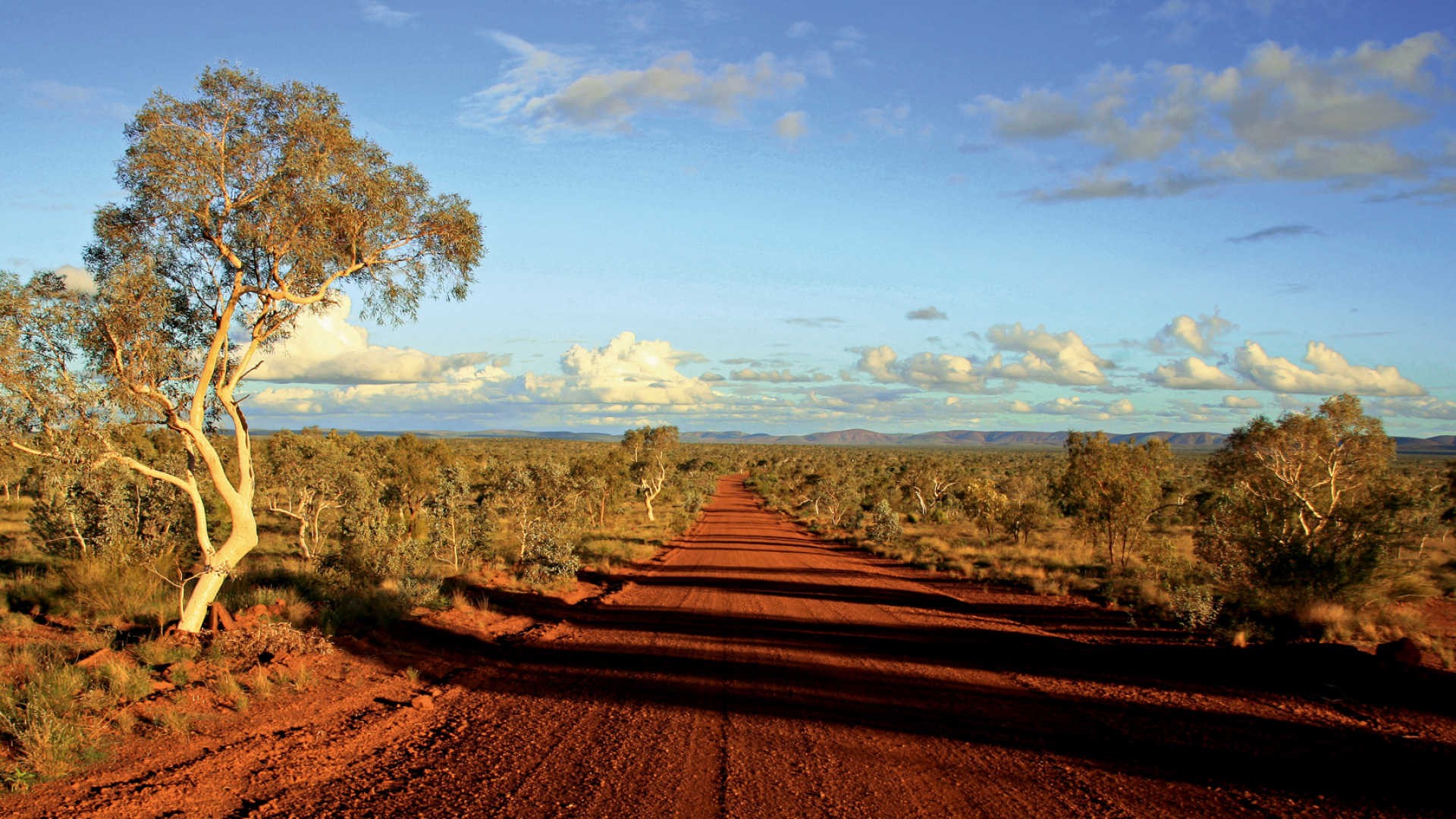
Eventually, his family ended up in an area so remote that there wasn’t even a school and so, at 12 years old, Peter would be sent to boarding school, where he remained for the next 6 years. During this time he very rarely saw his parents – instead, he stayed with the families of friends during the holidays.
As a result, Peter became what he describes as a ‘loner’ – a resource he feels has kept in good stead throughout his life.
After school and university, Peter became a teacher and got married. Peter’s first child Ben died just two days after being born. I had recently written an article about Dean Mumm, (former captain of the Australian Wallabies) who has lost 4 children to premature birth. This had resonated with Peter, telling me he understood how Dean felt, adding that “it never leaves you.”
Peter and his wife went on to have two more children. The eldest daughter was in the year below me in school. At 16 years of age, the youngest daughter developed anorexia which spiralled dangerously, which he says was an ‘incredibly difficult, scary experience for the family.”
At this time, Peter and his family were living and working in Taiwan, and Peter and his wife made the difficult but essential decision to return to Australia in order to seek better treatment. Peter remained in Taiwan working constantly to pay for the costs of the treatment and to support the family. It was during this time Peter fell into a serious depression, something he says – he has only recently come to terms with, adding “I had reached my lowest point”
After living in Taiwan for 8 years, Peter took up a new post in Jakarta. His whole family were now living in Australia. During the next few years he went back to Australia as often as possible but as time went on his relationship with his wife became strained and they eventually divorced. He says that during this time he almost ‘lost’ his daughters – adding that if it was not for his eldest, they may not be in contact at all today, which would have devastated him.
Peter is so grateful for his daughters, who now have “their own families, beautiful children and successful lives.”
In 2008 he met his current partner, Dina, with whom he has an 8 year old son, Max.
“During this time we started dreaming about our futures, and decided that we would buy some land and build a home and start a small business, eventually settling on a block in Lombok in 2014.”
For the next 4 years Peter sunk everything he had into this dream, renovating an old home and starting a small café and home stay. In 2018, he was about to retire from teaching to run this new business.
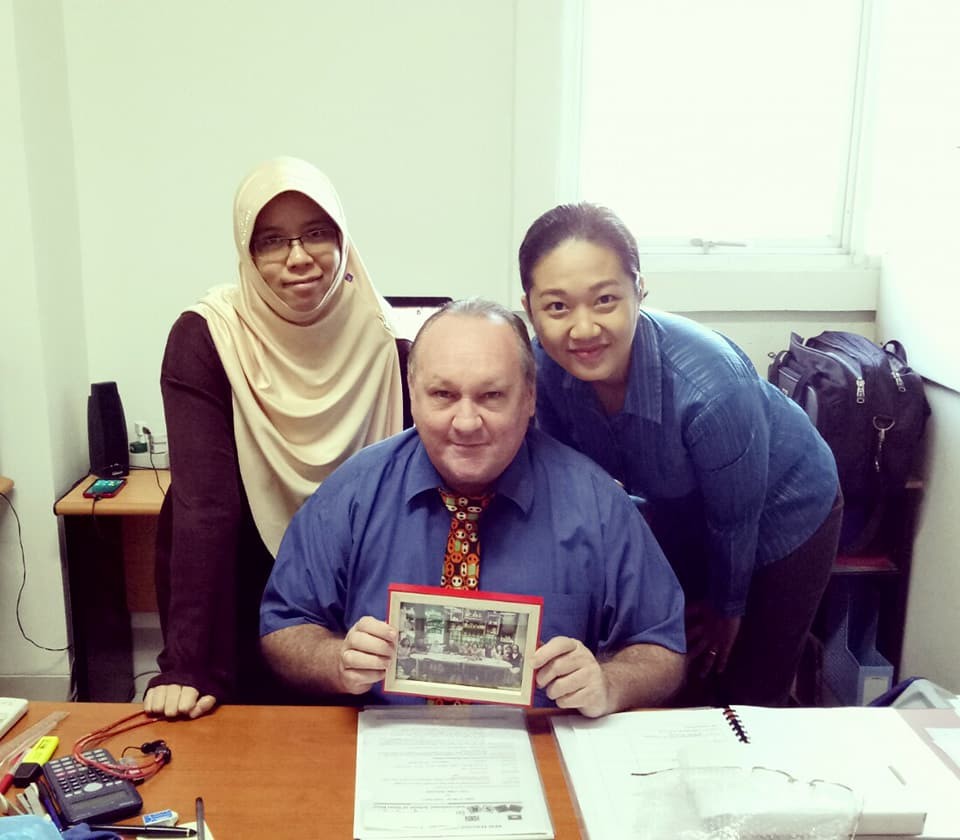
Indonesia falls on the so called “Ring of Fire”, a horseshoe-shaped area around the edges of the Pacific Ocean, from Australia to the Andes, along which 90% of all earthquakes occur. During 2017-18, the entire region was active with tremors, earthquakes, and active volcanoes.
“Everyone was on edge,” Peter tells me, “but we still felt everything was going to go really well – I was now working in Cambodia to save a little more before retiring, whilst Dina took care of the cafe and home stay.”
All during July earthquakes rattled Lombok and surrounding areas. One evening Peter received a call from Dina saying that there had been another, more serious earthquake, “I could tell she was really frightened”.
I told her, ‘Take what you can and go to higher ground.”
Ongoing tremors meant that they slept in their car for 2 days. When they returned they found that whilst the house had been damaged and looted, to their relief it was still largely intact. Only 2 days later, a 7.0 magnitude earthquake hit, which was followed by tremor after tremor. In that month alone, there were over 400 earthquakes in Indonesia.
This time they were not so lucky. Most of the remaining sections of the house were destroyed. In the weeks that followed government authorities deemed the property unsafe and ordered them to demolish everything, and then clear the debris.
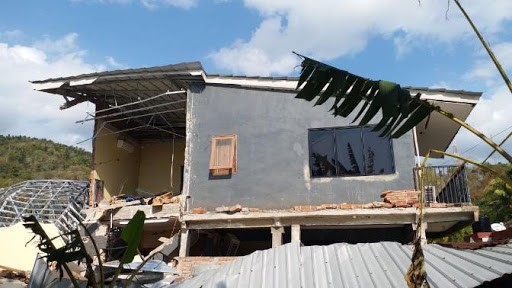
“We brought down what remained, and then ran out of money before we could clear the debris.” Today, Peter’s dream literally lies in ruins.
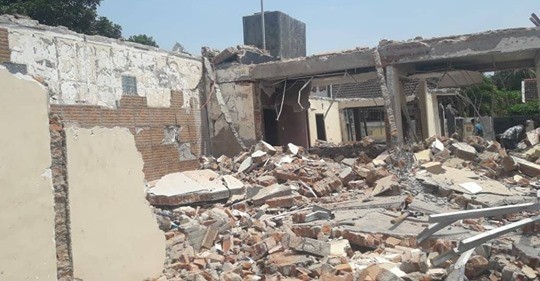
With no savings left, and despite the natural urge to return to Lombok to help, Peter had to remain in Cambodia in order to earn a wage. Homeless, his family had no choice but to set up a make-shift camp for over a month before he could secure a permanent and safe place for them to live. Not only did Peter support his family – but 10 others who had been left with nothing, including an 8-month old baby whose mother had abandoned her.
“We had to help these people. The government refused to declare a state of emergency in fear of damaging the tourist industry, so there was no other help.”
Throughout our conversation, I was struck with the absence of any self-pity. Sure, I could at times sense resignation and sadness, but Peter manages to consistently prioritise others. “It was really bad, but we were better off than so many others – many had absolutely nothing”
“It was tough, but not as tough as it was for Dina.”
“She is the resilient one,” Peter says. “I don’t know how she coped.”
Finding shelter wasn’t the only crisis.
“We lost all our documents in the wreckage, and, so we couldn’t prove ownership to the government. We were informed that without them, we could lose our land. We also could not apply for assistance.”
“Fortunately,” Peter says, “a looter found our documents in the rubble and ransomed them back to us”.
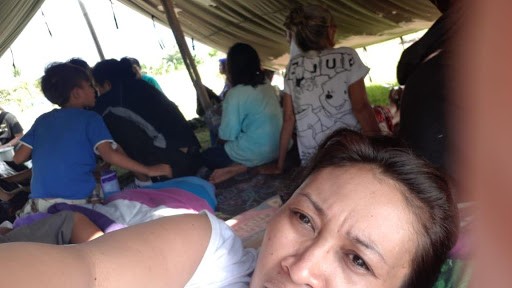
The situation today
“I haven’t seen my partner or son in over a year.”
Eventually, Peter was able to rent another house for his family, (and the 10 others they had been helping), but this couldn’t last.
“Eventually we had to move them on,’’ he says regretfully “I just couldn’t afford to help them anymore – we could hardly help ourselves. We continued to look after the baby until recently until were able to track down her paternal grandparents and re-home her with them. We never saw her mother again.”
Peter had lost his dream home and his retirement fund. His son had become ill. He was supporting 13 people in total, whilst working a job and living in a small apartment in Cambodia. He has been looted, ransomed, and threatened with losing the land on which the remains of his dreams are scattered. Throughout all of this, Peter never received any outside assistance, until a former student from Jakarta set up a GoFundMe page.
“This has been a life-saver, I have been humbled by the kindness of people. This has saved us.”
But this generosity could only go so far, “People can only give so much, which I understand.” To date they have reached $17,450 – all of which has been spent.
During this entire time, Peter has been alone in Cambodia.
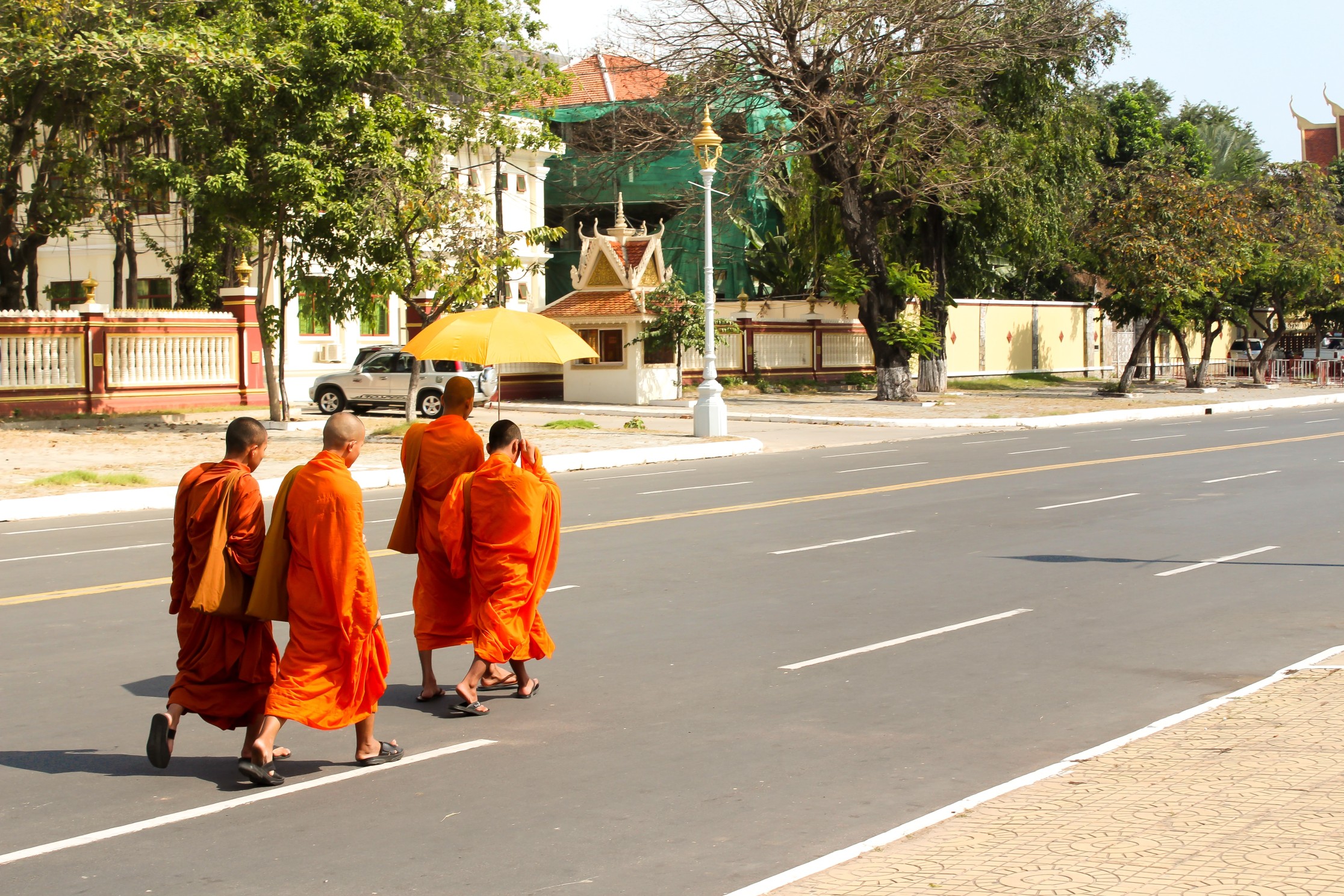
“Despite the difficulties…in a way it’s been good for me. I have been able to reflect on some of the things that happened. Cambodia has this spirituality about it, and this has allowed me to come to terms with many of the things that happened, like the loss of Ben, my baby, and the sickness of my daughter. It’s given me the time to think about them.
Today I go home and just sit on my balcony in the evenings, where you can hear local monks chanting in the distance.”
The Future
“We need to get over this, and then slowly start saving and start rebuilding,” Peter tells me.
“I’ll be 63 in November – I should be sipping a cocktail in a hammock in the beach by now, but at the moment, we are coping.”
Peter remains philosophical, “In life bad things happen from time to time. But life goes on and you’ve got to get used to the new life and live it the best you can. It sounds cliche – but never give up on your dreams.”
Remarkably, Peter believes, “It has been very good for me to lose everything I own, to live a spartan life. I just didn’t want that for my 8 year old. I worry he would think I didn’t support him.”
To the contrary, I say, I think that history will show what Peter achieved against all the odds was admirable – and I believe Max will understand – and be proud of him.
“I’m thrilled to have spoken to you – I really haven’t sat down and spoken to anyone about it to be honest, you’ve really helped me.”
And despite all that I’ve heard in our long call,
Peter tells me “I’ve had a lucky life.”
A week later
There was something poetic about speaking to “Mr Greener” as an adult. Once he was my teacher, and back then he was but a few years older that what I am now. Now, we speak as adults, about life in all its ups and downs.
There are many things that contribute to one’s resilience – including – for better or for worse our experiences. Human resilience is not only intrinsic, but is also derived from social support, from connection. It is so important to talk about our struggles, for to share in our pain is part of what it means to be human, and is essential to aid healing. Peter remains in Cambodia, and his real struggle continues. In sharing his story, I hope that his courage and kindness serves as an inspiration for others. He is humble to fault, and grateful in spite of everything. His efforts remind me of a quote from a poem Ralph Waldo Emerson;
“To know even one life has breathed easier because you have lived. This is to have succeeded.”


